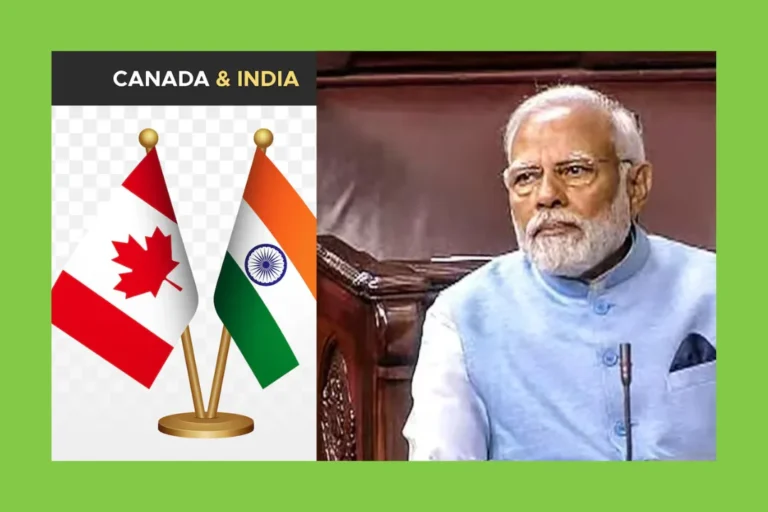
The G7 Summit is an annual gathering of the world’s most advanced economies to discuss global economic, political, and security issues. It includes Canada, France, Germany, Italy, Japan, the UK, the US, and the EU as guest participants.
A Diplomatic Chill Deters High-Level Engagement
Given the current political difficulties between Ottawa and New Delhi, Prime Minister Narendra Modi is unlikely to visit Canada for the upcoming G7 summit. Neither has the Trudeau-led administration extended an overture, nor does the Indian establishment seem remotely inclined to entertain the possibility, sources revealed. The ambient chill between the two governments must thaw considerably before any high-visibility state visit can be conceived.
Backdrop of the G7 Summit: A Platform for Global Powers
The conclave, which brings together the world’s most economically puissant nations—namely France, Germany, Italy, the UK, Japan, the US, and Canada—functions as a forum for candid discourse on global turbulence.
The European Union, the IMF, the World Bank, and the United Nations are often invited to participate as well. However, despite India’s growing geopolitical gravitas and repeated invitations to past outreach sessions since 2019, PM Modi’s presence this year appears profoundly improbable.
“A tête-à-tête between the apex leaderships would amplify anticipation of a diplomatic reset at G7 Summit, but substantive groundwork is yet to be laid,” noted a high-ranking interlocutor privy to the deliberations.
Though murmurs of goodwill have sporadically surfaced behind closed doors, these muted courtesies are insufficient to catalyze Modi’s participation in the June G7 Summit hosted by Canada. As per informed confidants, the wounds inflicted by past incidents remain too raw to be glossed over with ceremonial handshakes.
Barriers to Reconciliation Remain Unresolved
An interim path to détente may begin with reinstating high commissioners in both capitals—positions that have languished in absence since India retracted its envoy, following Ottawa’s naming of six Indian diplomats are “persons of interest” in the delicate and ongoing Nijjar assassination investigation.
While other nations such as South Africa, Australia, and Ukraine have already RSVPed to Canada’s invitation, ambiguity continues to shroud India’s role in the summit. New Delhi, insiders confirm, has yet to receive a formal communiqué from Ottawa. Even if such an invite materializes, attendance remains uncertain, barring measurable amelioration in bilateral rapport.
Security Concerns and Domestic Pressures Intensify the Impasse
Additional hesitations hover around the vortex of security liabilities. For a high-profile visit such as this, New Delhi demands ironclad assurances, especially against anticipated demonstrations by Khalistani sympathizers, whose unchecked activities in Canadian cities have long irked Indian authorities.
As recently as last month, India’s Ministry of External Affairs demurred repeatedly when questioned about Modi’s prospective schedule to G7 Summit, stating that no firm plans were in the public realm. Quietly, preparations for a series of ancillary engagements—among them a summit with Canadian business magnates in Calgary and a cultural outreach in Vancouver—have either been downsized or shelved entirely, further signaling a cooling of once-aspirational prospects.
Economic Outreach Encounters Stagnation
Community consortia operating within the Indo-Canadian commercial sphere had once harbored cautious optimism regarding the visit. Their hopes were tethered to early indicators suggesting a rekindling of economic and diaspora-oriented engagements. Yet those expectations now flicker dimly.
On the Canadian side, the new Mark Carney administration indicates a hesitant but determined interest in rekindling bilateral relations. Foreign Minister Anita Anand conveyed this sentiment in a recent media interaction, hinting that reconciliation would be a process of “incremental restoration.” Speaking candidly, Anand acknowledged the diplomatic scars left by the Nijjar affair—a geopolitical conflagration intensified after then-PM Justin Trudeau publicly accused the Indian government of complicity, prompting New Delhi to dismiss the allegation as “absurd and unfounded.”
While there may be a will, the way forward remains mired in frost and formalities.
Until a genuine détente arises, Modi’s symbolic visit to Canadian territory appears unlikely.